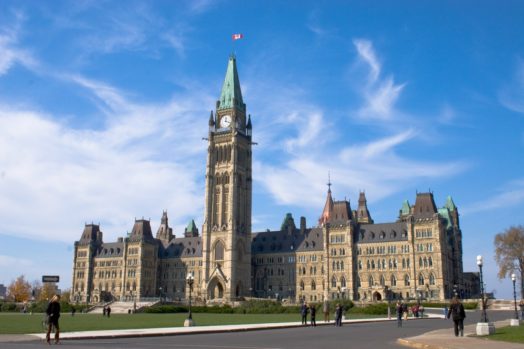[ad_1]

Immigration Minister Sean Fraser appeared today before the Canadian Parliament’s Standing Committee on Citizenship and Immigration to participate in the committee’s new study on IRCC’s application backlogs and processing times.
The parliamentary committee is comprised of elected federal government officials. Their mandate is to monitor federal policy relating to immigration and multiculturalism, as well as oversee the immigration department and refugee board. They conduct studies and make recommendations to guide immigration policy. Minister Fraser was invited on behalf of Immigration, Refugees, and Citizenship Canada (IRCC) to participate in the committee’s backlog study, which began last Thursday.
As of April 29, IRCC’s inventory had more than 2.1 million applicants waiting on decisions for citizenship, immigration, and temporary residence. The temporary residence inventory has doubled since April 2021, in part due to the Canada-Ukraine Authorization for Emergency Travel (CUAET), a measure put in place to support people fleeing from Ukraine.
Discover if You Are Eligible for Canadian Immigration
Processing standards to be met by end of year
Fraser also told the committee that IRCC will aim to return processing times to their standard for the majority of business lines by the end of the calendar year.
“I think we’ll be able to do it—on a majority of lines of business—potentially this calendar year,” Fraser said, “and where we can’t do it, we should be broadcasting those timelines.”
Processing standards refer to the goal IRCC sets to process an application. Standards do not always reflect actual processing times.
IRCC’s efforts to improve wait times for applicants include adding more staff to its 11,000 employees, as well as modernizing the immigration system. Fraser said the $827 million budget to digitize the current system will transform immigration in Canada. Already, efforts to modernize have helped IRCC make 156,000 permanent residency applications in the first quarter of 2022.
IRCC also has $85 million to speed up processing for certain lines of business, such as PR card renewals. IRCC Assistant Deputy Minister of Operations Daniel Mills said these PR card renewals were being processed in an average of 120 days in December, but by now it has been reduced to 65 days.
Changes to Express Entry
During the two-hour meeting, Fraser hinted that further changes were coming to the Express Entry system.
“I’m very excited about new flexibilities we’re going to be pursuing in the Express Entry system which will allow us, with more precision, to target workers to fill gaps in key sectors as soon as possible under the current system,” Fraser said before being cut off due to a shortage of time. The minister did not elaborate further throughout the rest of the meeting.
One of Fraser’s mandates as minister is to expand pathways to permanent residence for international students and temporary foreign workers through Express Entry. The minister had previously suggested that occupation-specific Express Entry draws could be a possibility for the future.
Notice of correction: This story previously said that Minister Fraser said standards would return to normal by 2023. The story has been corrected to reflect the Minister’s actual words.
Discover if You Are Eligible for Canadian Immigration
© CIC News All Rights Reserved. Visit CanadaVisa.com to discover your Canadian immigration options.
[ad_2]
Source link
